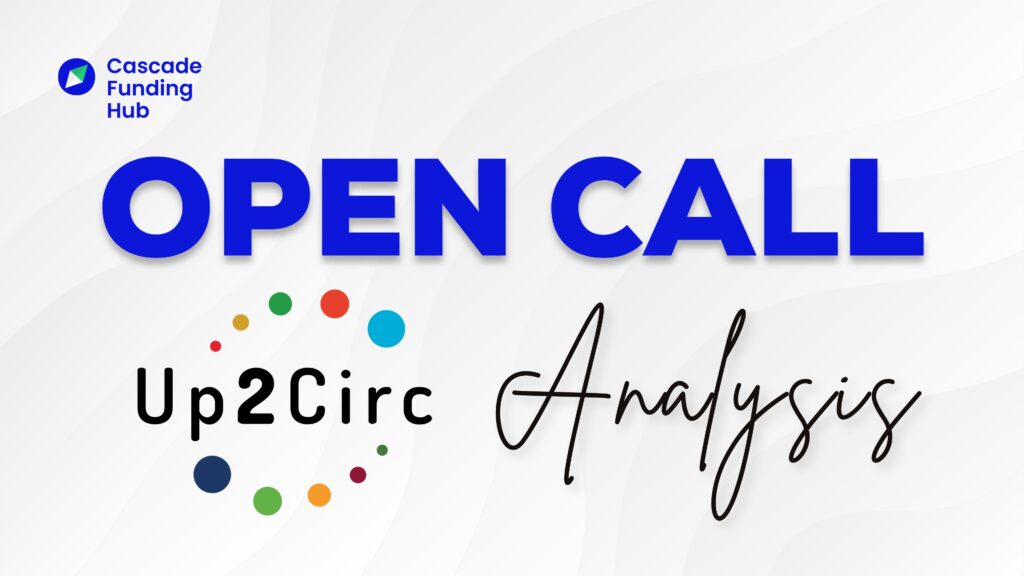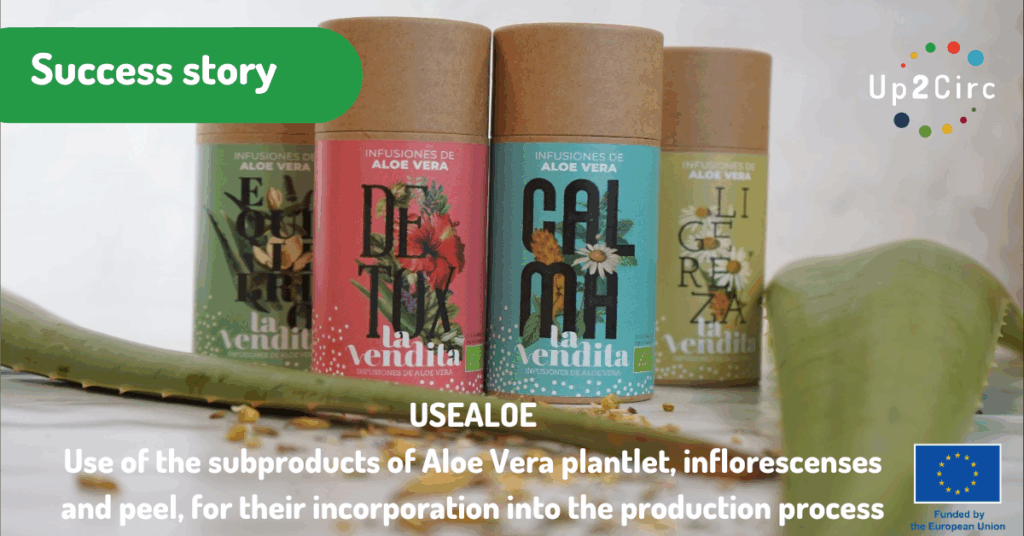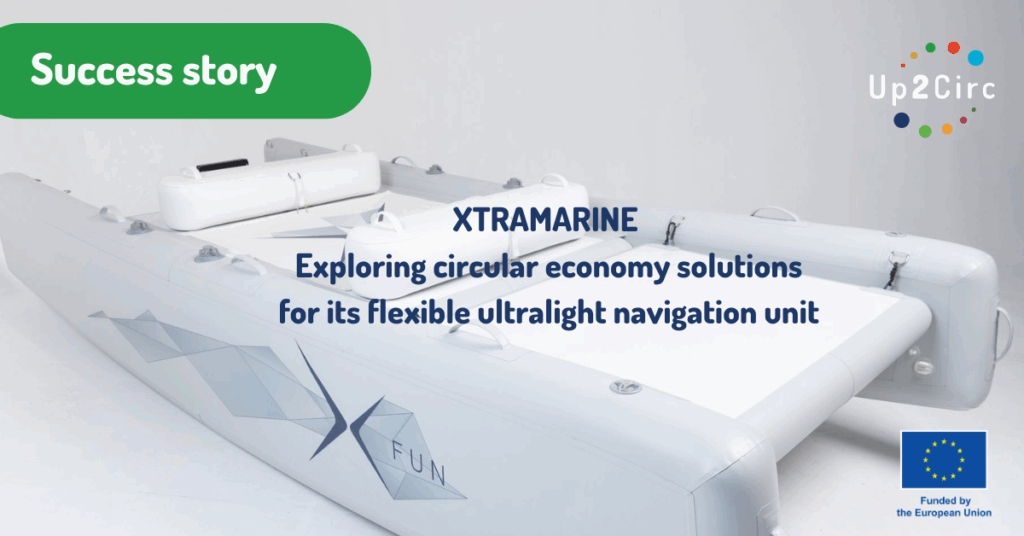SMEs with circular economy solutions can get up to €50,000 in funding through Up2Circ’s second open call. Open to EU-based companies that joined the Up2Circ Academy. Deadline: April 30 2025!
About Up2Circ Open Call 2
Up2Circ is an EU-funded project under Horizon Europe, aiming to accelerate the circular transition of SMEs through awareness raising, training, customised advisory and financial support. The second open call supports up to 40 SMEs to either conduct feasibility studies (small-scale projects) or implement pilot and demonstration projects (large-scale projects) that align with circular economy strategies. Projects begin on 1 July 2025 and run for six to twelve months depending on scale)
Why Apply to Up2Circ Open Call 2?
- Financial support: €15,000 for feasibility studies, €50,000 for pilots and demonstrations.
- 100% of eligible costs covered.
- No state aid implications.
- Lump sum payment in two instalments (50% upfront upon signing the subgrant agreement; 50% upon approval of the final report after project completion).
- Free tailored advisory services and access to the Up2Circ Academy.
- Participation in an EU-wide circularity acceleration initiative.
Success Stories
- USEALOE: La Vendita faced the challenge of managing large quantities of aloe vera by-products, including 36,750 kg of inflorescences, 190,000 kg of seedlings and 160,000 kg of leaf husks annually. Transporting this waste to a composting plant located 30 km away resulted in high labour costs and significant greenhouse gas emissions. Through the USEALOE project, the company has successfully transformed discarded aloe vera by-products into valuable resources and new income streams, developing innovative and sustainable products such as infusions, gels and powders with cosmetic applications. This solution has not only solved the waste management issue but has also enhanced resource efficiency by reducing dependence on virgin raw materials. Furthermore, it has minimized the environmental impact by lowering CO2 emissions from transport and waste composting.
- XTRAMARINE : Exploring circular economy solutions for its flexible ultralight naviation unit. XTRAMARINE conceived a new catamaran. They needed support to finetune the business plan accordingly the relevant circular strategies. The feasibility study allowed to explore in detail the different opportunities to adopt circular economy strategies having a clearer overview on what has a real ecological impact. Thanks to Up2Circ project the supported action XFUN Circular Feasibility has allowed to explore in detail the different opportunities to adopt circular economy strategies having a clearer overview on what has a real ecological impact guided by an important player in eco- design in France (the Pôle éco-conception www.eco-conception.fr). The major result of this comprehensive analysis is the definition of a business plan to move from a linear model (production, sale on the market, end of life) to a more circular model of renting XTRAMARINE products, which is very ambitious in terms of business organisation and change management, but very promising from an environmental and economic point of view.
- Kinotehnik ReLight Feasibility Study: Exploring Circular Economy Solutions for LED Lighting Fixtures. Kinotehnik faced the challenge of evaluating the feasibility of upcycling Practilite 602 and 604 LED lighting fixtures into next-generation models (Practilite 632/634). The objectives were to extend the product lifecycle and reduce environmental impact, overcome barriers like high logistics and labor costs, and address customer and distributor reluctance to adopt an upcycling model. Kinotehnik adjusted its approach to focus on the technical validation, with practical testing confirmed that 75% of mechanical parts and 100% of electronic components could be reused without compromising quality; and routine maintenance upcycling: instead of a standalone upcycling program, Kinotehnik integrated the process into routine maintenance cycles, allowing mechanical and electronics components to be refurbished or upgraded when customers send products for regular servicing. This approach minimizes logistical and labor costs while ensuring scalability.
Who Can Apply?
- Applicants must be SMEs based in the EU27 (Horizon Europe Associated Countries are not eligible)
- Applicants must have actively participated in the Up2Circ Academy online learning programme. Active participation is defined as completing at least 50% of the Up2Circ Academy e-learning modules.
- Applicants are required to upload the Up2Circ Assessment Report, completed with the support of an Up2Circ advisor. The Up2Circ advisor will assist the applicant in conducting a circularity assessment followed by completing the Up2Circ Assessment Report, which will outline the SME’s strengths, weaknesses, and suggested improvements.
How to Apply to Up2Circ Open Call 2 – Proposal Requirements
Applications must be submitted online. Required documents include:
- The Up2Circ Assessment Report, provided by an Up2circ advisor
- Proposal form, addressing the following sections:
- Project summary
- Relevance
- Novelty
- Work plan
- Team and network
- Risk analysis
- Environmental and social impact
- Business and broader impact
- Plan for covering additional costs
- Ethics self-assessment
- Budget breakdown, following the available template
Proposal Requirements for Up2Circ Open Call 2
The eligible projects should focus on one or more of the circular economy models defined by the Up2Circ call:
- For small-scale projects (feasibility studies), the eligible projects must focus on one or more of the following circular economy models:
- Circular supply chains (use of recycled, bio-based, or reclaimed materials).
- Sharing economy models.
- Product-as-a-service (subscription-based or pay-per-use models).
- Product life extension (repair, reuse, remanufacturing).
- Recovery and recycling (waste valorisation and closed-loop systems).
- For large-scale projects (Piloting and demonstration) ,there are three types of eligible activities:
- Implementation of technologies to increase circularity: Activities should focus on integrating technologies that significantly reduce resource consumption and/or waste production.
- Adoption of circular product design: Activities should involve conducting a product environmental footprint analysis (LCA), identifying optimization opportunities, and developing or testing a prototype.
- Introduction of new products, processes or services: Projects should introduce new products, processes, or services that enhance the circularity of the applicant’s core business. The measures do not need to be new to Europe but must be new to the company
Evaluation and Selection Process for Up2Circ Open Call 2
Up2Circ Second Open Call Applications undergo a two-step evaluation: eligibility check and expert review. Evaluation criteria include concept alignment (30%), feasibility (30%), and impact (40%), with a 3/5 threshold on each. Proposals are ranked based on total score, and tie-breakers consider impact score, concept score, and submission time.
Additional Support Beyond Funding
Through this open call, SPADE offers more than just funding, providing additional support to accelerate innovation:
Mentorship from SPADE partners, offering expert guidance.
Access to real-life case studies in Spain, Norway, and Greece for practical validation.
Open development through Eclipse Foundation’s GitLab, fostering collaboration.
Visibility and promotion across SPADE’s media channels and EU networks.
This comprehensive support ensures that selected projects gain the resources, expertise, and exposure needed to drive impactful advancements in drone technology.
Important Dates
- Opens: March 1, 2025
- Closes: April 30, 2025 (23:59 CET)
- Evaluation period: May 12 – June 11, 2025
- Results announcement: June 13, 2025
- Project start date: July 1, 2025
- Small-scale projects: 6 months (July 1, 2025 – December 30, 2025).
- Large-scale projects: 12 months (July 1, 2025 – June 30, 2026).
Final Thoughts on Up2Circ Open Call 2
Up2Circ offers a unique opportunity for SMEs to transition towards circularity with expert support and EU funding. By supporting 40 SMEs in adopting circular business models, implementing circular technologies, and introducing circular product designs, processes, or services, this Open Call presents a significant opportunity for SME applicants to get financial support, tailored mentoring, project monitoring, and access to the Up2Circ community.
Interested SMEs should complete the Up2Circ Academy modules and seek advisory support before submission.
More Information
Don’t miss the opportunity that could be the turning point of your success
Follow us on social media so you won’t miss any upcoming Info Days or Cascade Funding Opportunities
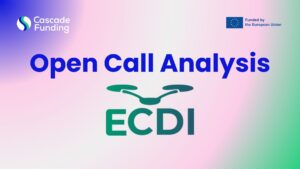
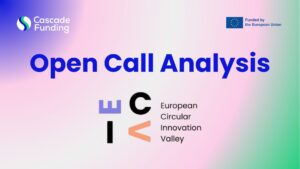
Open Call Analysis: ECIV Open 1 – Interregional Circular Innovation Projects

